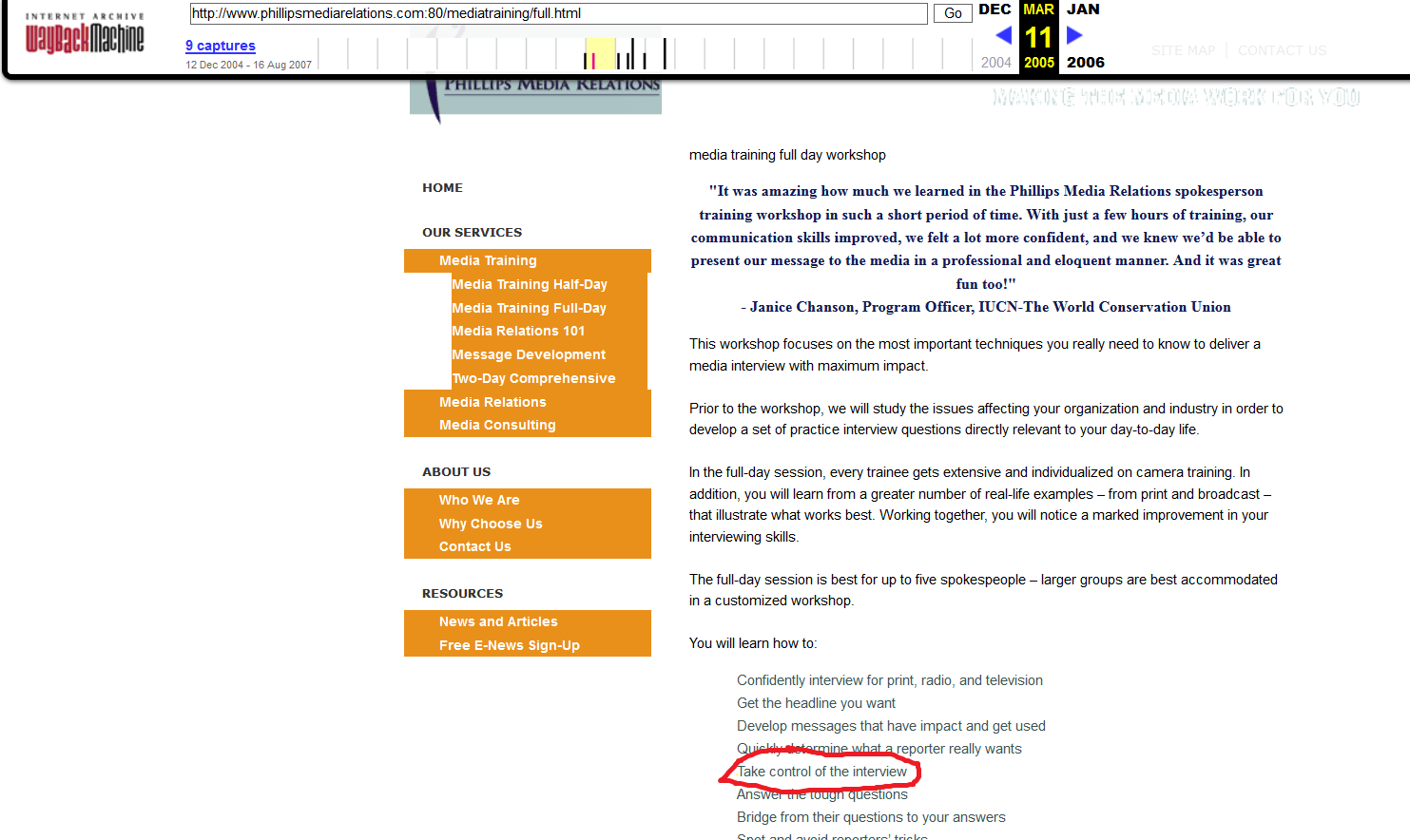The Promise Media Trainers Shouldn’t Make
You’re probably familiar with the Serenity Prayer, which Alcoholics Anonymous uses in its 12-step program:
God, grant me the serenity to accept the things I cannot change
Courage to change the things I can
And wisdom to know the difference.
I thought of that recently as I reflected on a word often associated with media training — control.
That word shows up in the marketing materials of some media trainers who promise to teach clients how to “control” media interviews. Given that the dictionary definition of the word means “to have power over,” are trainers really promising to teach spokespersons how to have power over the person who will be making the final editing decisions?
Before going any further, I have a confession to make from up here on my high horse. I’m also guilty of using that term in my previous firm’s marketing materials. Thanks to the “Wayback Machine,” I loaded up an early iteration of my previous company’s website from March 2005 — and there, circled in red below, is that pernicious word: control.

Back to the Serenity Prayer:
You cannot change the words a reporter writes or their final editing decisions. We cannot prevent, despite our best efforts, a reporter hell-bent on writing an article with a certain negative focus from publishing the story. We cannot prevent a producer from editing a piece in such a manner that distorts, misrepresents, or otherwise alters our intended meaning.
You can change the things you can by learning to deliver stronger answers, react more effectively to unanticipated questions, and convey confident body language that boosts the credibility of your message. You can learn to reduce the risks of unfair editing or distorted narratives.
And we, as media trainers, should have the wisdom to know the difference.
I often think of media interviews as one of those fundraising charts often seen outside of firehouses, with the thermometer filled in with red as donations come in.
Good media training can help you increase the odds of getting a favorable outcome. Good trainers equip spokespersons with tools and techniques to help them fill in their thermometers with substantially more red.
Does such training mitigate all potential risk? No, of course not — whenever there are two people (or more) in an exchange and you’ve ceded your editing and approval power, there will always be some inherent risk. Even if we do our jobs well, we can’t eliminate all risk — run from anyone who tells you they can — but we can anticipate many of those risks and prepare people for them with proficiency.
And now, because writing this post has filled my head with the tune of Janet Jackson’s 1986 hit “Control,” here’s her video.



